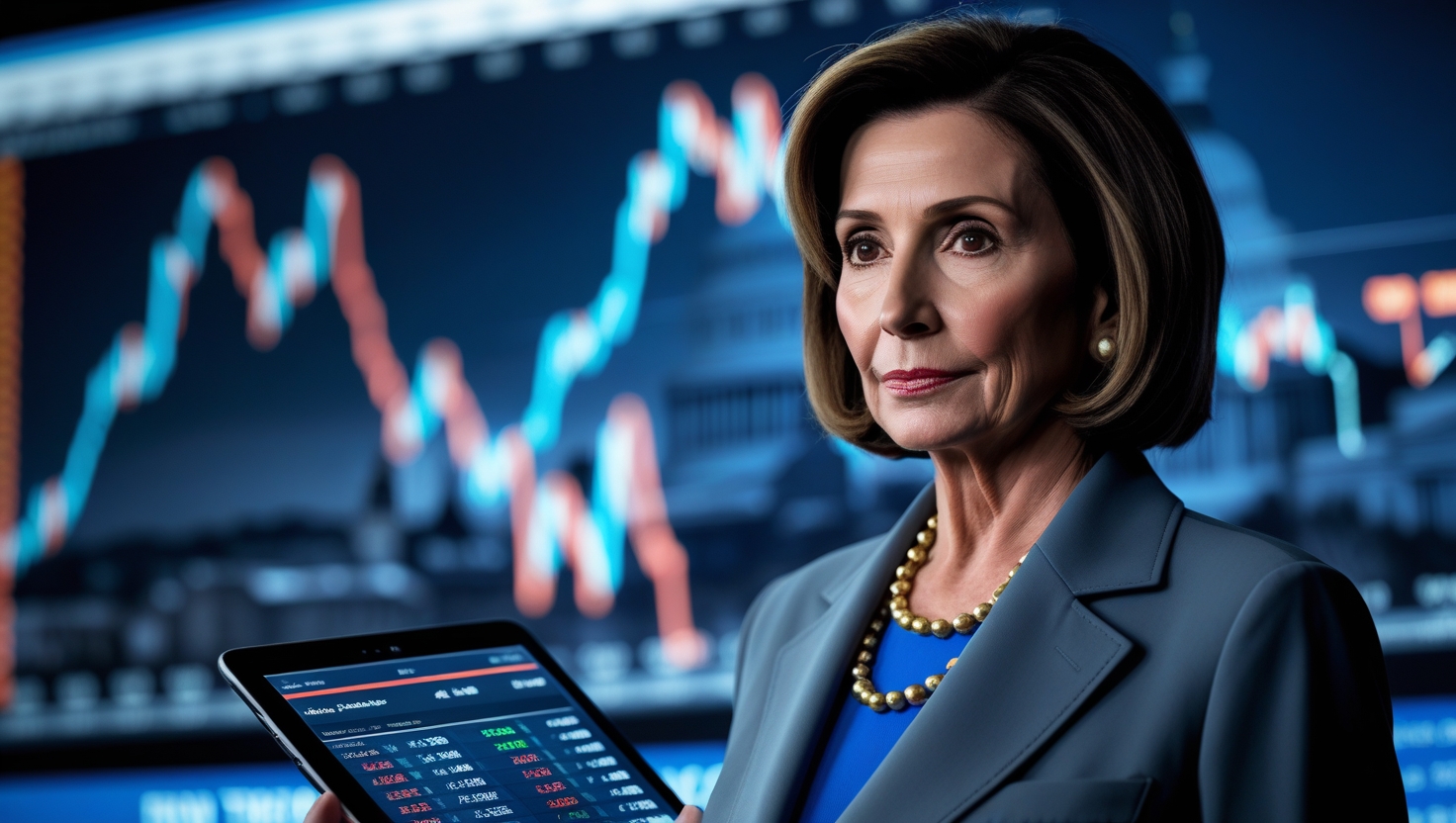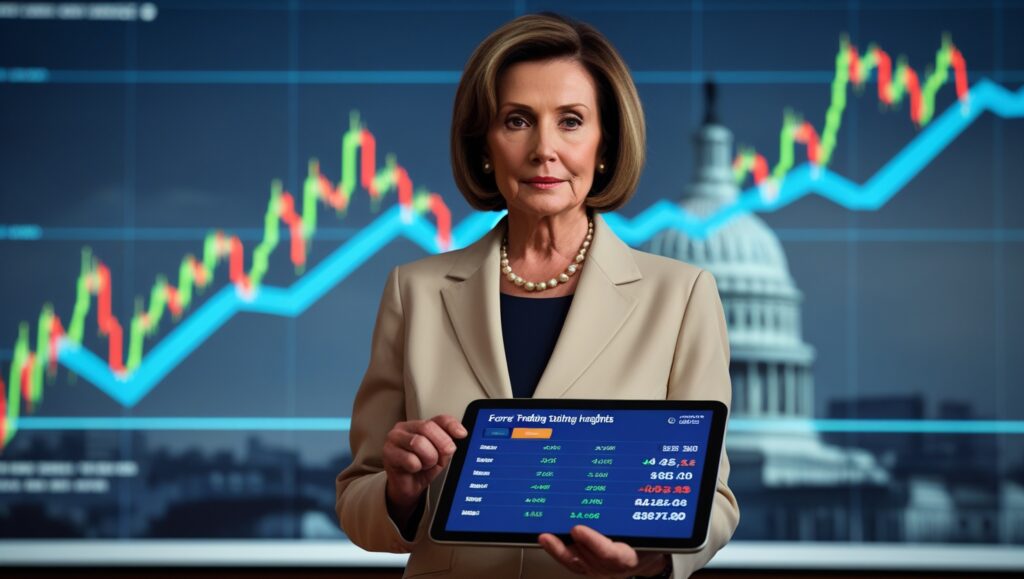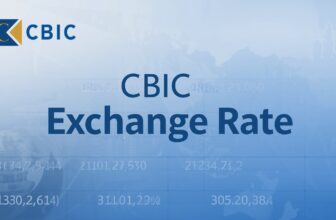
The question of nancy pelosi insider trading has become a lightning rod for debates about ethics, transparency, and market fairness. Critics point to the extraordinary gains reported in House Speaker Pelosi’s investment filings, while defenders cite her free-market stance and adherence to the 2012 STOCK Act. In the court of public opinion, her stock trades — often in high-profile tech companies — spurred fury and fresh legislative proposals. For forex traders, this saga underscores how political news can sway markets, heighten volatility, and test trader psychology. In this overview, we review the Pelosi case and similar controversies, then draw out practical lessons about market influence, trading psychology, and the role of regulation.
Overview: Nancy Pelosi Insider Trading
| Category | Key Insight | Lesson for Forex Traders | Regulatory Impact |
|---|---|---|---|
| Political Trading Controversy | Pelosi denied wrongdoing but faces scrutiny over timing of tech stock trades during pandemic briefings, highlighting transparency vs. free market tensions | Be skeptical of “insider tips” and political trade mimicking – focus on fundamentals over speculation | Sparked new bills like “PELOSI Act” to ban Congressional stock ownership |
| STOCK Act Limitations | 2012 STOCK Act requires 45-day reporting but has enforcement gaps – no prosecutions despite suspicious activity | Understand that disclosure rules exist but enforcement varies – don’t assume all markets are equally monitored | Calls for stricter penalties and blind trust requirements for officials |
| Market Psychology | Political news creates more currency volatility than economic data – perception drives price moves over fundamentals | Manage FOMO and herd behavior – use stop-losses and position sizing to weather political volatility | Increased scrutiny on market manipulation and information asymmetry |
| Global Scope | Political insider trading is worldwide issue – UK/French officials fined for pandemic-related trades, crypto markets also affected | Monitor global political developments across jurisdictions – currency markets are interconnected | International coordination on insider trading rules and transparency standards |
| Trading Strategy | Successful traders focus on economic indicators, central bank policies, and long-term trends rather than political rumors | “Trade what you see, not what you think you know” – maintain disciplined strategies during news events | Enhanced broker transparency requirements and transaction reporting standards |
| Ethical Standards | Market integrity depends on transparency and equal access to information – even appearance of conflicts erodes trust | Choose regulated brokers and venues that promote fairness – support market structures that ensure equal access | Strengthened AML/KYC rules and FX Global Code enforcement against client information misuse |
The Nancy Pelosi Insider Trading Controversy
Nancy Pelosi has repeatedly denied any wrongdoing, insisting she never used nonpublic Congressional information for profit. Her defenders note that she doesn’t personally own stocks, and that her $174,000 salary is modest compared to her reported $200–$400+ million net worth. Nevertheless, headlines have highlighted eye-popping returns attributed to “House billionaire” trades. During the 2020 pandemic, lawmakers including Pelosi and her husband made millions in gains on companies like Amazon and Apple. This coincided with political briefings on COVID relief, fueling suspicion. The debate hinges on transparency: Pelosi and others say they followed disclosure rules (“We have a responsibility to report,” she said), while critics argue that even the appearance of a conflict erodes trust.
- Free-market vs. Fairness. Pelosi framed Congress’s activity as market participation. “We are a free market economy. They should be able to participate,” she told reporters. However, opponents counter that lawmakers essentially juggle inside information and private investing. Indeed, Pelosi supports legislation banning Congressional stock trades. (She claims this is to bolster public confidence: “The American people deserve confidence that their elected leaders are serving the public interest — not their personal portfolios,” she said.)
- STOCK Act Loopholes. The STOCK Act (2012) was meant to curb insider gains, requiring members to report trades within 45 days. Yet enforcement gaps persist: nobody has been prosecuted under the law even after years of suspicious activity. An AP report notes that many members still trade conspicuously or fail to report at all. The lack of prosecution stems from the law’s high burden of proof: courts must show intent and that nonpublic info was wrongfully used.
- High-Profile Cases. Beyond Pelosi, several high-ranking legislators have faced scrutiny. For example, Senate Intelligence Chair Richard Burr sold millions in early 2020 after private COVID briefings (he later stepped back amid criticism). More concretely, former Representatives Chris Collins and Stephen Buyer were convicted of insider trading in unrelated biotech and telecom schemes. These cases sent a chilling message that politicians can face jail for abusing confidential knowledge.
In sum, the Pelosi insider trading saga illustrates the tension between free-market principles and the need for clean hands in democracy. Whether or not Pelosi herself is culpable, the uproar has led to new bills (e.g. the “PELOSI Act” introduced by Senator Hawley) and calls to ban all Congressional stock ownership. As Senator Hawley put it, “Members of Congress should be fighting for the people they were elected to serve — not day trading at the expense of their constituents”. Hawley’s remark captures a broader point: political insider knowledge can create unfair advantages, and even the perception of insiders profiting can shake market faith.
Political Insider Trading: Broader Context and Regulation
Insider trading among officials is not limited to Pelosi. Public figures, their spouses, or advisors have long been under watch. For instance, when news emerged that former Vice President Mike Pence’s wife Karen had sold stock before a market plunge, it raised eyebrows (though she said sales were pre-planned). In the UK, French officials were fined for dumping shares before a pandemic lockdown, showing that the issue is global. Cryptocurrency markets, too, have seen allegations of politicians leveraging private crypto policy info.
Key Legislative and Ethical Safeguards
- Existing Laws: The U.S. STOCK Act prohibits lawmakers and staff from trading on official knowledge and mandates reporting. Violations can lead to criminal charges under SEC or DOJ action, although so far prosecutions are rare. By contrast, corporate insiders face strict 10b5-1 rule plans; SEC Chair Gary Gensler has tightened those rules, warning that “insiders may be trading in ways that harm investors and undermine the integrity of the securities markets.”.
- Proposed Reforms: Outrage over well-timed trades has fueled bills like the “Honest Act” and Hawley’s “PELOSI Act”. These would ban stock ownership for sitting officials and require blind trusts for current holdings. For example, under Hawley’s plan, any undeclared political trades would be forfeited and penalized, effectively treating them as illicit. Such measures aim to eliminate even the temptation.
- Transparency Push: Experts argue that disclosure alone isn’t enough. Analysts note that “insider trading is a breach of trust and an affront to the principles of market fairness”. In practice, watchdog groups and new apps (like Autopilot or social media trackers) now alert investors to Congressional trades, forcing a level of scrutiny that no-stock bills hope to install by law.
For forex traders, the main takeaway is that political actors can move markets. Even if currency desks aren’t buying stock portfolios, rules about nonpublic information still matter indirectly. For example, FX traders watch for leaks on interest-rate plans or trade deals. When a lawmaker leaks rates or sanctions news (legally or not), currencies can spike. In short, both regulators and individual traders emphasize that markets function best when everyone (from central bankers to legislators) follows the same playbook.
Forex Markets: Influence, Psychology, and Strategy
Forex traders live in a 24/5 global market sensitive to news, rumors, and sentiment. Political insider trading controversies highlight how market psychology and perception often drive price moves more than fundamentals. As one analysis notes, events like elections, trade wars, or shocks have historically caused “more significant price swings in the currency market than even the most important economic data.” Brexit, U.S. presidential elections, and sudden tariffs are cases in point. When politicians make headlines – whether it’s Pelosi’s portfolio or other high-level trades – traders react, sometimes overshooting rational valuation.

- News and Noise: A piece of political news can act like any market-moving release. For example, rumors of a Fed rate cut or a surprise trade tariff can send the dollar soaring or plunging in minutes. The Pelosi tracker phenomenon shows retail traders even mimicking Congressional portfolios, a reminder that belief (rational or not) can spur buying or selling. Traders must sift signal from noise: not every rumor pans out, and acting on unverified tips is akin to gambling.
- Emotional Risks: Forex traders are susceptible to FOMO (fear of missing out) and herd behavior. Anonymized data suggest that when political gossip circulates, inexperienced traders often overleverage or chase volatile pairs. Psychological blow-ups can follow. As fraud experts warn, manipulators exploit “information asymmetry and investor psychology”. In other words, if a crowd believes “insiders know something,” it can become a self-fulfilling prophecy – until the bubble bursts.
- Rational Response: Seasoned traders set rules to counteract fear and greed. This means using stop-loss orders, diversifying positions, and sizing trades to weather volatility. It means keeping a clear plan: “trade what you see, not what you think you know.” Over time, volatility around political events often reverts; by focusing on longer-term trends or economic indicators (GDP, interest rates, supply-demand), traders avoid impulsive stabs in the dark.
Key Lessons for Forex Traders:
- Stay skeptical of “insider tips.” If a social media post cites a lawmaker’s trade, treat it cautiously. Even if Pelosi’s trades outperformed hedge funds, there were plenty of skeptics. Learn from her story by never assuming political players have secret winning strategies.
- Understand that global currency markets, while vast and decentralized, share a need for trust. No centralized authority polices every Forex move, but major regulators (e.g. CFTC, FCA, ASIC) do enforce against fraud and manipulation. For instance, pump-and-dump or front-running schemes are illegal in FX just as in stocks. Keep in mind the core principle: markets work best when everyone has the same information.
- Focus on fundamentals and trends. If a politician touts a policy or treaty, analyze its probable economic impact (on trade balances, inflation, etc.) rather than gut-reaction trading. As the Bank for International Settlements observes, transparent policy frameworks (clear targets, predictable rules) bolster trust and stability. In real trading terms, that means calibrating stops and positions based on volatility, not on hearsay.
- Manage psychology. Use trading journals and community forums wisely to avoid isolation during big news. Many reputable traders talk about ‘waiting for the dust to settle’ after a shock, rather than overreacting. Over time, discipline builds character: as one trader quipped, “Trading doesn’t just reveal your character; it builds it if you stay in the game long enough.” (In practice, that means learning from mistakes, not repeating panic trades.)
Regulatory Takeaways and Best Practices
Nancy Pelosi’s case ultimately underscores the importance of regulatory oversight and ethics. For forex traders, the direct analogs are AML/KYC rules, CFTC/NFA regulations, and broker transparency. Just as Congress must eventually follow clearer ethics rules, FX markets benefit from:
- Transparency Initiatives: Regulators increasingly demand brokers offer transaction reports, and large banks adhere to codes of conduct (like the FX Global Code) against misuse of client information. Traders should favor regulated venues and understand their broker’s safeguards against front-running or unethical conduct.
- Legal Boundaries: It’s worth remembering that trading on Material Nonpublic Information is illegal in most jurisdictions, even in Forex. While “insider trading” typically refers to equities, using confidential data (e.g. an unannounced intervention by a central bank insider) for profit would violate law and contract.
- Investor Confidence: A well-regulated market lowers transaction costs and volatility. As SEC Chair Gensler noted, closing loopholes and enforcing insider rules increases investor confidence, which in turn helps capital markets function efficiently. By analogy, Forex traders should support and operate within structures that promote fairness (like getting regulated accounts, or using guaranteed stop tools if available).
Conclusion
The Nancy Pelosi insider trading controversy is about more than one person’s portfolio. It’s a cautionary tale of how political power and private wealth can collide, stirring debates over fairness and rules. For the forex trader, the episode highlights enduring principles: be aware of how news and rumors move markets, maintain ethical standards, and rely on rules and analysis rather than hearsay. By keeping a cool head amid political noise, traders avoid the pitfalls of herd mentality and misinformation. Regulation exists to protect market integrity, and understanding it helps traders navigate risk.
In the end, we take away practical advice. Track legitimate news sources (and as Hawley urged, ensure your investments aren’t caught in insider scandals). Stick to disciplined strategies: set stops, size bets wisely, and focus on core drivers like central bank policies or economic growth. Remember that transparency and trust — whether in U.S. Congress or global currency markets — are not just moral ideals but foundations of sound trading. By internalizing these lessons, forex traders turn a high-profile political controversy into a teaching moment on market influence, human psychology, and the enduring value of ethical conduct.
FAQs
What is the Nancy Pelosi insider trading controversy?
Nancy Pelosi and her husband have made numerous high-profile stock trades during her tenure in Congress, which some say suggest an information advantage. Critics accused her of profiting from legislative knowledge, though Pelosi insists she had no prior knowledge and followed disclosure rules. In response to public outcry, she has backed bills banning lawmakers from trading stocks to avoid any appearance of impropriety. Ultimately, no criminal charges have been filed in her case.
Are members of Congress allowed to trade stocks?
Legally, yes – as long as they obey the STOCK Act. Passed in 2012, this law requires lawmakers and staff to report stock trades publicly within 45 days and bars trading on specific inside information. In practice, enforcement has been lax: AP News noted that ten years after the STOCK Act, “no one has been prosecuted” under it. Proposed reforms (like bans on all stock holdings) are intended to close these gaps. The Pelosi debate has reignited those legislative efforts.
How does this controversy affect forex traders?
While Pelosi’s trades concern the stock market, the underlying lesson for forex traders is about market influence. Political news can sway currency pairs just as it moves equities. Traders must beware of acting on rumors of insider info; instead, they should rely on transparent data (central bank statements, economic releases, etc.). The controversy reminds Forex traders to manage emotions (FOMO, panic) and to verify information. In volatile times, sticking to disciplined risk management—stop-losses, position sizing, diversified strategies—is key.
What lessons can traders learn from such events?
Key takeaways include:
1) Skepticism toward “hot tips.” Treat alleged insider-driven rumors as noise unless verified.
2) Follow fundamental analysis. Base currency trades on factors like interest rates or trade balances, not sensational headlines.
3) Risk management is crucial. Volatility around political news is normal; use stops and avoid over-leverage.
4) Understand the rules. In any market, trading on privileged info is unethical and often illegal. By focusing on quality data and sound strategy, traders protect both profits and peace of mind.

















